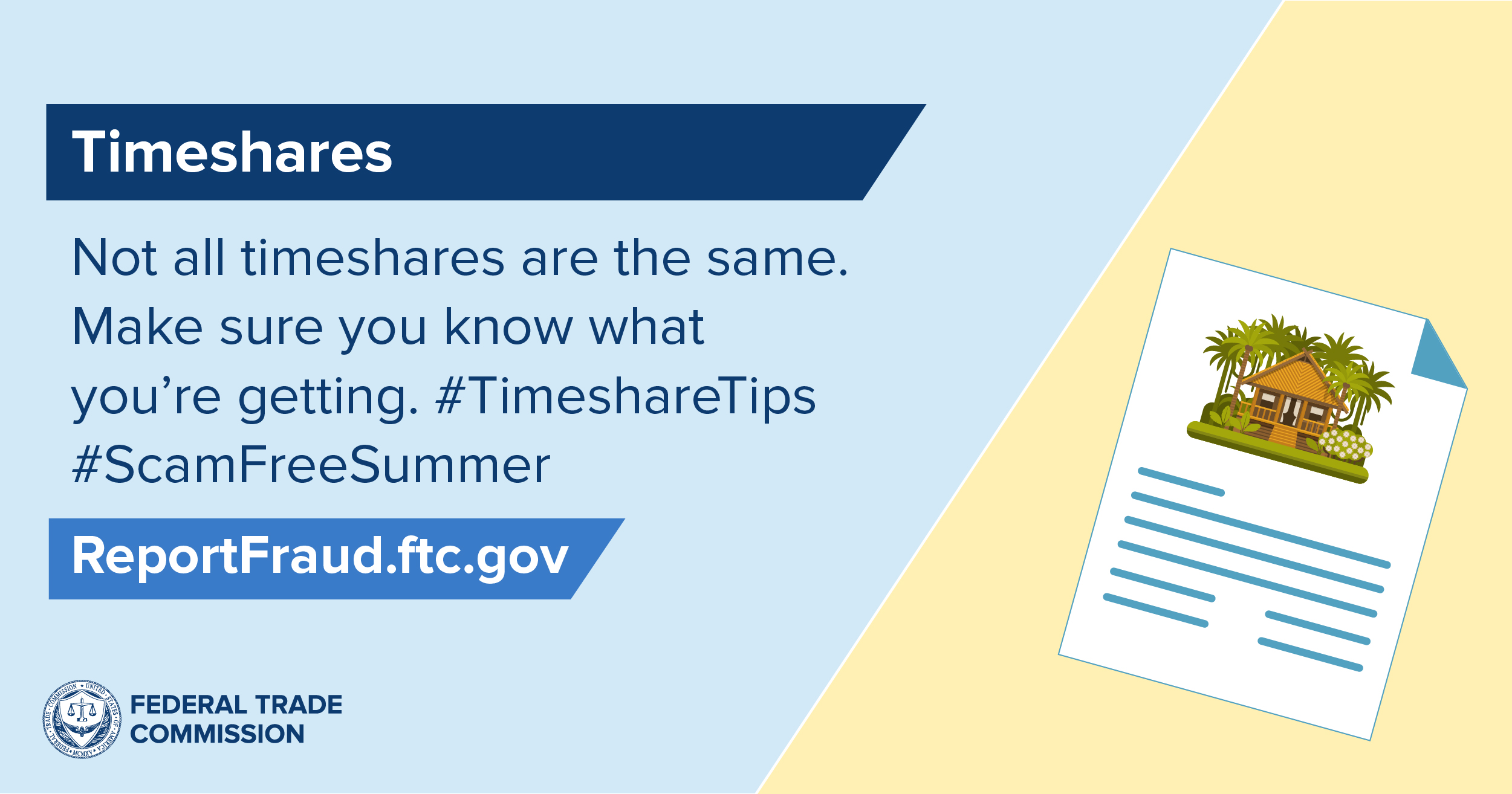 If you’re considering getting a timeshare this vacation season, read on. Maybe you got a flyer in the mail with pictures of sunny beaches and beautiful resort suites. Sounds great, right? But before you sign a timeshare contract, make sure you understand what you’re getting into — and how to get out of it.
If you’re considering getting a timeshare this vacation season, read on. Maybe you got a flyer in the mail with pictures of sunny beaches and beautiful resort suites. Sounds great, right? But before you sign a timeshare contract, make sure you understand what you’re getting into — and how to get out of it.Not all timeshares work the same way. Some use points to determine where you can stay and for how long. Others get you one week a year at a resort, but it’s not always the same week. The cost also varies … a lot. Typically, timeshares require you to pay initial fees and yearly maintenance fees that may increase every year.
Promoters might offer you a gift or delicious meal to attend a timeshare presentation. If you decide to go, the sales staff may make a lot of promises and pitches designed to get you to buy right then and there without giving you time to think about it or do any of your own research.
So before you sign that timeshare agreement, ask yourself a few questions:
- If the timeshare is only for a specific property, is this where I want to vacation every year?
- Can I afford this timeshare, even if the maintenance fees go up?
- Do I have the time to deal with issues that may arise if I can’t book the resort I want during the time I want to travel?
- If I no longer can afford or want the timeshare, how can I sell it?
And read Timeshares, Vacation Clubs, and Related Scams for more tips.
Search Terms

In reply to I got talked into this in by Shamming
In reply to Great bullet point about "how by Lauri
In reply to Pls put the correct email for by Donaphine
You can report scams, fraud and bad business practices at the FTC website: www.ReportFraud.ftc.gov.